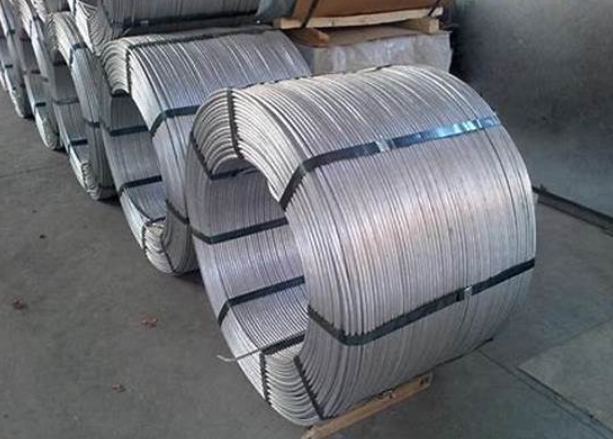
In the industry of steel, the metallurgy behind molten iron is essential to ensuring a high-quality product. One of the crucial processes is to reduce the amount calcium introduced into liquid steel during casting. Calcium cored steel wires allow for better process control and more efficient casting. This is of particular importance when working low silicon steels and aluminium killed grades, which require a strict Calcium treatment.
For this purpose, conventional calcium-cored wires are used. However, they have a number of drawbacks. The high injection amounts can also lead to an increase in calcium metering systems costs. AFFIVAL created Hi-Cal, a new type cored wire based off an innovative and advanced concept to reduce costs and improve metallurgical outcomes.
This new wire has a core made of a high purity metal strip of calcium surrounded with a steel cladding. The strip will be welded together by longitudinal welding before being reduced to the final dimension. The core has a higher density than conventional cored wires, which enables the steel to cladding ratio to be significantly improved. This allows the calcium to enter the steel ladle at a lower-pressure, which reduces contamination and increases atomization efficiency.

The pure cored wire is also able to penetrate the steel slag more effectively than the conventional cored wires. This allows for the melted metal to reach down into the steel ladle, and reduces the burning of the metal in the slag. The molten steel can then absorb the metal calcium more quickly. This also allows the nozzles be opened earlier to ensure a more reliable process.
This new technology is being implemented in various steel plants across Europe. The results obtained have been very promising. At a large European steel plant, the calcium content of conventional cored-wires was reduced to only 6.5kg calcium per tonne cast metal using Hi-Cal (r). This resulted both in an increase of metallurgical productivity and a decrease of energy consumption. All of this was achieved with no changes to the customer's equipment or current practices. The same excellent metalurgical results will be expected from other customers. Detailed metallurgical tests on a variety of steel grades are currently being conducted to confirm these initial positive results. The metallurgical test data will be used to develop a data-driven, systematic strategy that can be tailored for specific steel grade requirements as well as optimizing calcium treatment. Steelmakers can then maximize the benefits of cored wire. The development is being supported by several external grants. The first commercial Hi Cal(r), production will start in 2022.

Write a Message